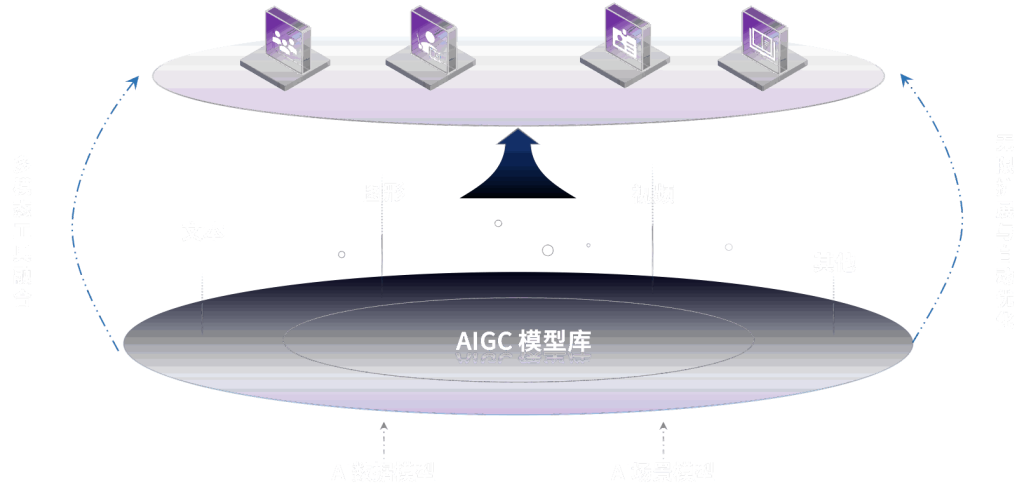In recent months, the field of Artificial Intelligence (AI) has witnessed significant advancements, particularly in applications tailored for businesses and productivity. This article explores three prominent developments: Quickbooks AI, the no-code platform Retool, and cutting-edge semantic analysis technologies.
.
**Quickbooks AI: Revolutionizing Financial Management**
One of the most significant advancements in financial management tools is the integration of AI into Quickbooks, a leading accounting software. Quickbooks AI functionalities have been designed to streamline various accounting tasks, reduce manual effort, and enhance decision-making processes for businesses of all sizes.
Quickbooks AI employs machine learning algorithms to automate traditionally time-consuming processes such as expense categorization, invoice generation, and financial forecasting. By analyzing historical transaction patterns, Quickbooks AI can predict future cash flows, allowing businesses to plan better for their financial futures.
Recent updates in Quickbooks AI include advancements in Natural Language Processing (NLP), enabling users to interact with the software using everyday language. For instance, users can ask questions such as “What were my total sales last month?” and receive instantaneous, comprehensible answers. This level of usability democratizes data insights, allowing even those with minimal accounting knowledge to leverage advanced analytics.
Additionally, Quickbooks AI has introduced features such as intelligent tax tracking, which automatically identifies deductible expenses based on user activity and historical data. This innovation significantly reduces the burden on businesses during tax season, ensuring they can optimize their deductions without extensive manual intervention.
The potential of Quickbooks AI is vast, especially for small to medium-sized enterprises (SMEs) that may lack dedicated accounting staff. By reducing errors, streamlining workflows, and providing actionable insights, Quickbooks AI transforms how businesses handle their financial management.
.
**Retool: The No-Code Revolution in App Development**
As the demand for customized business applications rises, Retool emerges as a leading no-code development platform, harnessing AI to simplify and expedite the app-building process. Retool’s objective is to enable non-technical users to create secure and functional applications without extensive coding knowledge.
Recent developments include the integration of AI features that enhance user experience. For example, Retool has introduced AI-driven components that allow users to generate code snippets based on natural language descriptions. This means that a user can simply describe the application they envision, and Retool’s AI can automatically create the basic structure of that app.
Moreover, Retool supports seamless integration with various databases and APIs, which makes it easier for businesses to pull data from existing software systems. With data manipulation functions enhanced by AI capabilities, users can build complex applications that tailor to specific business needs without becoming overwhelmed by technical complexities.
Retool’s focus on user experience is complemented by its community-driven approach. Users can share their creations and utilize templates developed by others, which fosters a rapid learning curve and accelerates the implementation of custom tools.
As the digital landscape evolves, the ability for organizations to quickly develop applications that respond to their unique challenges becomes increasingly necessary. With AI-driven tools like Retool, enterprises can become more agile, innovate at an accelerated pace, and adapt to changing market demands efficiently.
.
**Advances in Semantic Analysis: The Rise of Contextual Understanding**
In the realm of Natural Language Processing, semantic analysis has made remarkable strides, significantly enhancing our understanding of human language. This technology plays a crucial role in various applications, including AI chatbots, content generation, sentiment analysis, and more. Semantic analysis focuses on deriving meaning and context from text, enabling machines to understand not just words, but the concepts and emotions behind them.
Recent advancements in semantic analysis include the development of transformer-based models, which have reshaped how machines interpret language. The introduction of models like BERT (Bidirectional Encoder Representations from Transformers) and GPT-3 has revolutionized tasks like language translation, summarization, and question-answering.
BERT, for instance, utilizes a bidirectional approach to context, allowing it to grasp the meanings of words based on their surrounding text. This capability enables machines to provide more relevant and contextually accurate responses, enhancing user satisfaction and engagement. Innovations continue with newer models, augmenting the potential applications for businesses and industries reliant on language processing.
In market research, semantic analysis tools are now being used extensively to analyze customer feedback and social media sentiment. By capturing consumer emotions and intent through text mining, businesses can refine their products and services to meet customer needs more effectively. Companies are leveraging these insights for more personalized marketing strategies, allowing for targeted campaigns that resonate with consumers on a deeper level.
Moreover, the growth of semantic search capabilities means businesses can improve their SEO strategies by understanding user intent and context. This advanced understanding helps in delivering content that aligns with what users are genuinely seeking, further driving engagement and conversions.
In conclusion, with ongoing advancements in semantic analysis, organizations can harness language data to drive strategic initiatives, enhance customer interactions, and ultimately, foster growth.
.
**Conclusion: The Future of AI in Business**
As Artificial Intelligence continues to evolve, the landscape for businesses will be transformed by tools and technologies like Quickbooks AI, Retool, and semantic analysis. These advancements not only make processes more efficient but also empower organizations to make data-driven decisions with ease.
The combination of intuitive AI interfaces, no-code development platforms, and advanced language processing capabilities heralds a new era for businesses. Organizations that embrace these technologies can unlock new levels of productivity, customer engagement, and market insight, positioning themselves favorably in an increasingly competitive environment.
As we move forward, it will be essential for businesses to remain adaptable and strategically leverage these developments in AI. Keeping an eye on emerging trends and innovations will ensure they stay ahead of the curve, driving success in the digital economy.
Sources:
– QuickBooks AI Features Overview on Intuit Official Website
– Retool – Official Documentation and Features
– Advances in Semantic Analysis in AI Training Publications




























